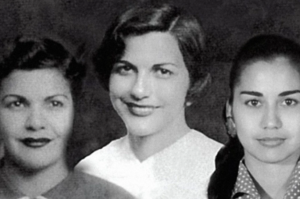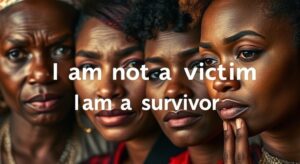Violence against women is a serious problem affecting millions worldwide. It knows no boundaries. It crosses cultures, regions, and economic backgrounds. This issue touches every corner of society.
Each year, on November 25th, the world observes the International Day for the Elimination of Violence Against Women. This day shines a spotlight on the urgent need to fight violence against women and girls. It is a moment to reflect on the severity of this issue.
But it is more than just a day of awareness. It is also a powerful call to action. Governments, organizations, and individuals are urged to take meaningful steps. Together, we can create a safer and more just world for women.
The History Behind the Day

The observance of this day began in 1981 at the first Latin American and Caribbean Feminist Encuentros in Bogotá, Colombia. It honors the Mirabal Sisters, Dominican activists murdered in 1960 by Rafael Trujillo’s regime for their political work. Their sacrifice symbolizes the violence women face in the fight for freedom and equality.
In 1999, the United Nations formally recognized the day, emphasizing the importance of ending violence in all its forms, including domestic violence, sexual assault, trafficking, and harmful traditional practices. The observance has grown into a global movement, with governments and civil society organizations joining efforts to combat this devastating issue.
The Scope of Violence Against Women
Violence against women can take many forms:
- Physical violence: This includes domestic abuse, sexual violence, and trafficking for sexual exploitation.
- Psychological violence: Emotional and mental abuse can be just as harmful as physical abuse, affecting a woman’s sense of self-worth, autonomy, and mental health.
- Economic violence: This occurs when women are denied financial resources or are economically manipulated in ways that limit their independence and freedom.
- Cultural violence: Harmful practices like female genital mutilation (FGM), child marriage, and honor-based violence continue to impact many women and girls, particularly in certain regions.
The consequences of such violence are far-reaching, not only affecting the health, safety, and well-being of individuals but also impacting communities and economies. It often leads to long-term psychological trauma, physical injuries, and social isolation. Furthermore, it perpetuates cycles of poverty, discrimination, and inequality, reinforcing gender-based power imbalances.



Global Statistics on Violence Against Women
According to the World Health Organization (WHO), approximately one in three women globally experience physical or sexual violence in their lifetime, most often by an intimate partner. However, this staggering statistic represents only a fraction of the problem. Indeed, many women do not report their experiences due to fear, stigma, or a lack of access to support services.

The Importance of Awareness and Education
The International Day for the Elimination of Violence Against Women raises awareness and promotes education. It fosters discussions on gender inequality, harmful norms, and the need for legal reforms to protect women’s rights. It also advocates for comprehensive victim support, including shelters, legal aid, and mental health services.
Actions We Can Take
This day is a reminder that ending violence against women requires collective action. Here are some ways individuals and communities can contribute:
- Advocate for stronger laws: Support policies that criminalize violence against women and ensure that victims have access to justice.
- Support organizations: Donate to or volunteer with local and global organizations that provide support services to women facing violence.
- Educate others: Help raise awareness by educating your community about the signs of abuse and how to support survivors.
- Empower women and girls: Encourage equal opportunities for women in education, work, and decision-making roles to reduce vulnerabilities to violence.

A Call to End Violence
Violence against women violates human rights and hinders global progress. The International Day for the Elimination of Violence Against Women reminds us that ending violence is everyone’s responsibility. Together, we can create a world where women live freely, without fear.
Let’s commit to more than recognizing this day.
let’s work toward a society where every woman and girl is treated with dignity and respect, and violence is no longer accepted.
https://www.un.org/en/observances/ending-violence-against-women-day
https://www.unwomen.org/en/what-we-do/ending-violence-against-women
#ViolenceAgainstWomen #EndViolenceAgainstWomen #SayNoToViolence #StopGenderBasedViolence #WomenDeserveBetter #WomensRightsAreHumanRights #BreakTheSilence #StopTheCycle #EmpowerWomen #SpeakOutAgainstViolence
